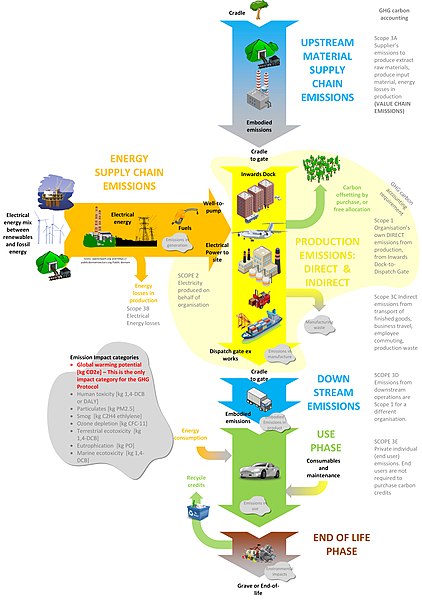Living an eco-friendly lifestyle is not only a choice; it’s a commitment to sustaining the planet for future generations. One of the most impactful ways to contribute to this endeavor is by lowering your carbon footprint. This blog post delves into practical strategies and mindful approaches that individuals can adopt to embrace eco-friendly living and reduce their environmental impact.
Understanding Carbon Footprint
Before delving into actionable steps, it’s essential to comprehend the concept of a carbon footprint. This term refers to the total amount of greenhouse gases, particularly carbon dioxide, produced directly and indirectly by human activities. By recognizing the sources of one’s carbon footprint, individuals can begin to implement effective measures to minimize their impact on the environment.
Sustainable Mobility and Transportation
An effective way to lower your carbon footprint is by reevaluating your transportation habits. Embracing sustainable mobility options such as walking, cycling, carpooling, or utilizing public transportation significantly reduces carbon emissions associated with daily commutes. Additionally, considering electric or hybrid vehicles promotes eco-friendly transportation alternatives.
Energy-Efficient Practices at Home
Adopting energy-efficient practices within the home serves as a pivotal step in reducing one’s carbon footprint. Simple actions like switching to LED light bulbs, optimizing heating and cooling systems, and investing in energy-efficient appliances contribute to decreasing energy consumption, thereby mitigating greenhouse gas emissions and fostering a more sustainable living environment.
lIncorporating renewable energy sources into your daily life is another powerful method to reduce your carbon footprint. Solar power, in particular, stands out due to its capability to harness the sun’s energy to generate electricity with minimal environmental impact. For those residing in areas with significant sunlight, such as Boise, installing solar panels can be a practical and eco-friendly investment. Not only does adopting solar power in Boise reduce dependence on fossil fuels, but it can also lead to substantial savings on electricity bills, showcasing a win-win situation for both the environment and homeowners.
Sustainable Consumption and Waste Reduction
Practicing sustainable consumption involves making conscious decisions about purchases and reducing unnecessary waste.
Opting for reusable products, embracing minimalism, and actively recycling and composting contribute to a circular economy that minimizes resource depletion and environmental harm, ultimately leading to a lower carbon footprint.
Embracing Renewable Energy Sources
Transitioning to renewable energy sources, such as solar or wind power, empowers individuals to actively participate in reducing their carbon footprint. Installing solar panels at home or choosing a utility provider that prioritizes renewable energy procurement aligns with eco-friendly living, promoting sustainable energy practices while minimizing reliance on fossil fuels.
Mindful Dietary Choices
The food we consume has a significant impact on our carbon footprint. Embracing a plant-based diet, reducing food waste, and supporting local and sustainable food sources are effective ways to lower the environmental impact of dietary choices. Mindful eating habits play a crucial role in fostering eco-friendly living and reducing the carbon footprint associated with food production and distribution.
Advocacy and Community Engagement
Advocating for environmental causes and engaging with local communities amplifies the impact of individual efforts in lowering carbon footprints. Participating in community clean-up initiatives, supporting environmental conservation organizations, and advocating for sustainable policies contribute to a collective commitment to preserving the planet and fostering eco-friendly living on a broader scale.
Conclusion
Lowering your carbon footprint is a meaningful and actionable contribution to global environmental sustainability.
By integrating sustainable mobility, energy-efficient practices, mindful consumption, and community engagement into everyday life, individuals can proactively embrace eco-friendly living while inspiring others to join the movement towards a greener, more sustainable future.
Together, these conscientious efforts pave the way for a world characterized by environmental harmony and responsible stewardship.

